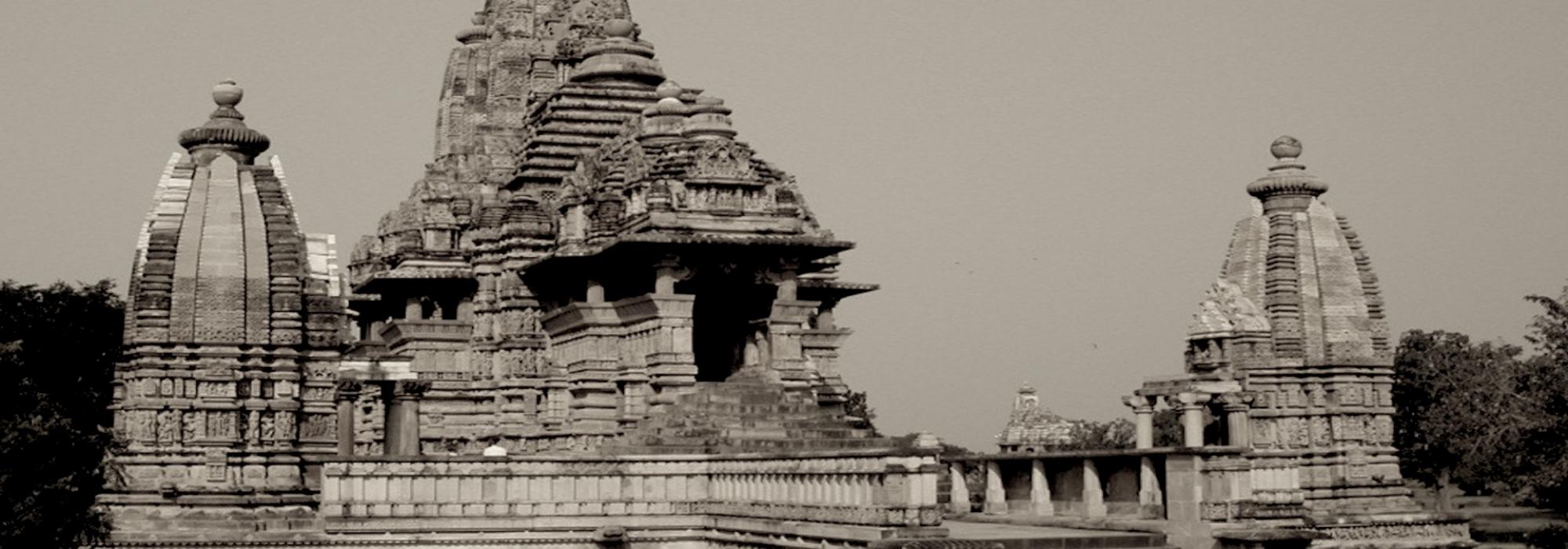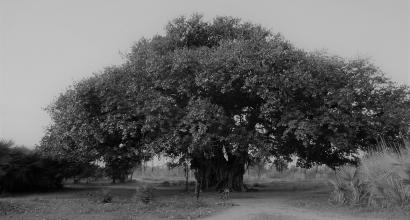The Guptas hailed from the vaiśya community. It has been mentioned earlier that there is no great significance attached to being a kṣatriya by birth. By purposely concealing this fact, our so-called secularists claim that brāhmaṇas and kṣatriyas conspired together to discriminate against and oppress the people of other varṇas. This is far from the truth and there is little merit in this allegation.
Words like viśva, vaiśya, and veśa have all originated from the root viś. Among several meanings, this root word denotes ‘going in,’ ‘enmeshed,’ ‘intermingle,’ ‘all-encompassing,’ and so on. ‘Yatra viśvaṃ bhavati eka nīḻam’ is a line from the Vedas – ‘The world is akin to a bird’s nest.’ The essence of this statement is that everything must live together with a spirit of love, affection, and harmony. This has a parallel in the modern conception of ‘global village.’ When we observe the outlook of a common person, we find that there is equal reverence towards all deities.
The common people of our country would pay equal respects to all deities but for the interference of misleading religious orators, fanatical pontiffs, phony priests, mullahs, qazis, pastors, and nuns. I have seen in my own village: during Urus (a religious procession of Muslims), all Hindus including brāhmaṇas would visit the dargah, light sāmbhrāṇi incense sticks, and return home after taking theprasāda. During Christmas Eve (the night of 24th December), Christians would visit each house taking out a procession. We would stay awake in anticipation of their visit and give them money to celebrate their festival. They would sing carols as they walked along. The Christians would also give money to celebrate the Muharram dance. The Muslims would also dance in front of various temples. They would stitch caps for Holi. They would visit the Kali and the Mariamma temples, getting the sacred amulet tied. The Christians would also dance during Holi and Gaṇapati utsava.
Even to this day in Bangalore, we witness long queues of burqa-clad Muslim women in front of the Gali Anjaneya Temple and at the Cottonpet Kali Temple to get the yantra and the amulet tied. There are any number of Hindus who light candles at the Infant Jesus Church. It matters little which deity it is, as long as it solves our problems. We don’t see much zealotry in common people. Those who impute greatness upon themselves take an extreme view. It is for this reason that all arts and tastes co-exist peacefully in the world. It is the common folk who are the guardians of diversity in the world and not the self-styled greats. These eminences don’t require diversity. They are typically tormented by extreme prejudice. Common people, on the other hand, are always open to trying new and different tastes; for instance, several South Indian homes try out varieties of North Indian cuisine.>
It is the common people who engage in activities like agriculture, commerce, and animal husbandry. Until a few centuries ago, the only activities that generated livelihood were farming, commerce, trade, cattle-rearing, and allied professions. Carpenters typically manufactured ploughs, crowbars, pestles, and axes. Potters produced troughs for feeding cows, pots for watering trees and plants, and earthenware for storing milk and curd. This was typically the livelihood of various allied professions.
In the Vedas itself we find the mention of more than twenty-five such professions. In later texts, we find reference to a system of guilds like pūga, śreṇi, and nigama. These were the systems of trade and commerce in vogue during those days, akin to today’s guilds, craft councils, chambers of commerce, etc. All those come under the umbrella of vaiśya. The second section of the Amarakoṣa has a chapter titled Vaiśya-varga. This and the subsequent chapter, Śūdra-varga are mirrors that reflects the life of the common people of ancient India.
The Guptas emerged from here.
Srigupta was the progenitor of this dynasty. He was followed by Ghatotkachagupta. Even to this day, the surname Gupta is prevalent among vaiśyas. Even the Manu and other smṛtis mention this surname for vaiśyas. The word ‘gupta’ means ‘one who protects.’ The world is dear to the common man and the common man is needed for the world. The vaiśya community is also known as trustees (viśvastha) of the world. The Guptas emerged from this tradition. They were endowed with an extraordinary spirit of kṣātra. Thus, they were kṣatriyas by temperament.
Translated by Hari Ravikumar and Sandeep Balakrishna
To be continued

















































